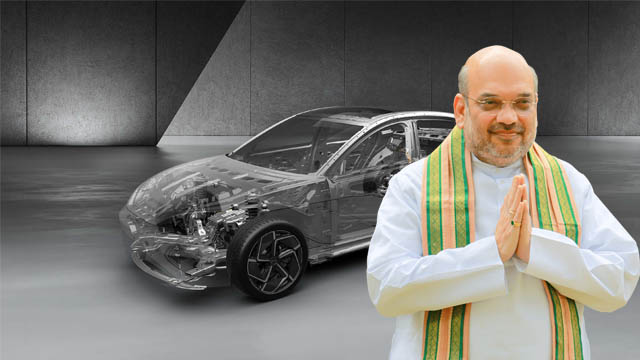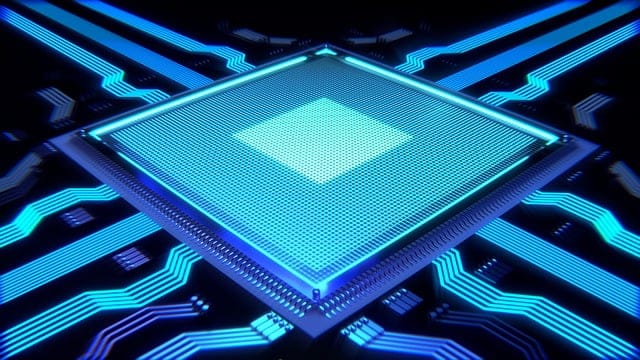Mainstream media reports claim that India’s Union Ministry of Home Affairs (MHA) has reportedly denied permission to the world’s largest electric vehicle (EV) manufacturer Build Your Dreams (BYD) to set up a factory in Hyderabad in collaboration with infrastructure major Megha Engineering and Infrastructure Ltd (MEIL). The MHA denied permission to BYD due to its Chinese origin, the mainstream media reports allege.
BYD and MEIL had planned to invest over US$1bn in Hyderabad to establish an EV factory and also a battery manufacturing unit. According to reports published in the Indian mainstream press, the Chinese-origin BYD has been mooting the plan to open a factory in Telangana since 2018. BYD already has a factory in Chennai and an office in New Delhi in India.
BYD, which surpassed Tesla in 2022 to become the world’s top EV company, has garnered acclaim for its cutting-edge Blade Battery and dual-mode hybrid power technology. According to reports, BYD has already invested over $200m in India for the Atto 3 electric SUV and the e6 EV, which target corporate fleets. The company had been mooting the launch of a luxury sedan EV in India ever since 2022.
BYD’s partner MEIL has a subsidiary named Olectra. It is poised to set up the largest EV bus factory in India. According to the company, Olectra has successfully produced and deployed various electric bus models all over India. The proposed factory would have had a capacity to manufacture over 10,000 electric buses annually along with electric auto rickshaws, trucks and other vehicles.
As the MHA denied permission to BYD, it caused a significant setback to the industrial plans of Telangana’s government led by Chief Minister K Chandrashekar Rao, whose ruling Bharat Rashtra Samithi is a vocal opponent of the federally-ruling Bharatiya Janata Party. The MHA’s denial is also a blow to Prime Minister Narendra Modi’s much-hyped “Make in India” programme that aims at boosting India’s manufacturing capacity vis-a-vis China’s.
The MHA’s involvement in the foreign direct investment (FDI) proposal took place due to a Union government’s rule that aimed at restricting Chinese businesses in India. After a mass uproar in different states following the Galwan Valley clash between the Indian Army and the Chinese People’s Liberation Army (PLA) in mid-2020, the Union government has made a rule that makes it mandatory for FDI from countries that share borders with India to get security approvals from the MHA.
As there is negligible or no FDI from any of India’s neighbours except China, it became apparent that the regulation aimed at restricting the scope of Chinese businesses in India. Moreover, the MHA denied permission to BYD soon after Modi’s maiden state visit to the US, where he bagged several defence and business deals from President Joe Biden’s administration.
Modi’s US trip reportedly aimed at mending ties between New Delhi and Washington DC, which is passing through a turbulent phase due to India’s neutrality on Russia’s special military operations in Ukraine. Modi’s unusual state visit, as the head of the government, to the US resulted from Washington DC’s attempt to woo New Delhi as a close partner in South Asia against China.
By dangling baits of technology, investment and defence deals, Washington DC is luring New Delhi to expand the scope of Indo-US partnership against China in the diplomatic, military and trade fields. India is already a member of the anti-China military entente called QUAD, along with Australia, Japan and the US.
While as members of the World Trade Organization (WTO), the US and India are compelled to provide equal business opportunities to China, the anti-China rhetoric that was stirred by the former US president Donald Trump has brought a significant change in the ways these countries now do business with the Asian giant. Both countries have been exploring options to curtail the growth of China, especially in trade and commerce, violating WTO norms.
Even though MHA denied permission to BYD, Modi has welcomed US’s Tesla, owned by Elon Musk, to invest in India. Tesla reportedly buys automotive-grade lithium-ion batteries from Japan’s Panasonic. As India has been focusing on moving towards EVs to reduce dependence on imported fossil fuel, it appears that the Modi government, under which bilateral trade with China reached its record height in 2022, despite jingoistic rhetoric, is now all set to appease the QUAD member countries.
India, which is a member of crucial bodies like the Shanghai Cooperation Organization (SCO) and the Brazil-Russia-India-China-South Africa (BRICS) bloc that advocate for a multipolar world order free from the US’s domination, it’s yet to maintain complete neutrality regarding foreign policy. It has been repeatedly tilting towards the West, despite the threats to its sovereignty and economic prospects from the US and its allies.
The company has not responded to the queries. Once the BYD’s views are available this story will be updated.



